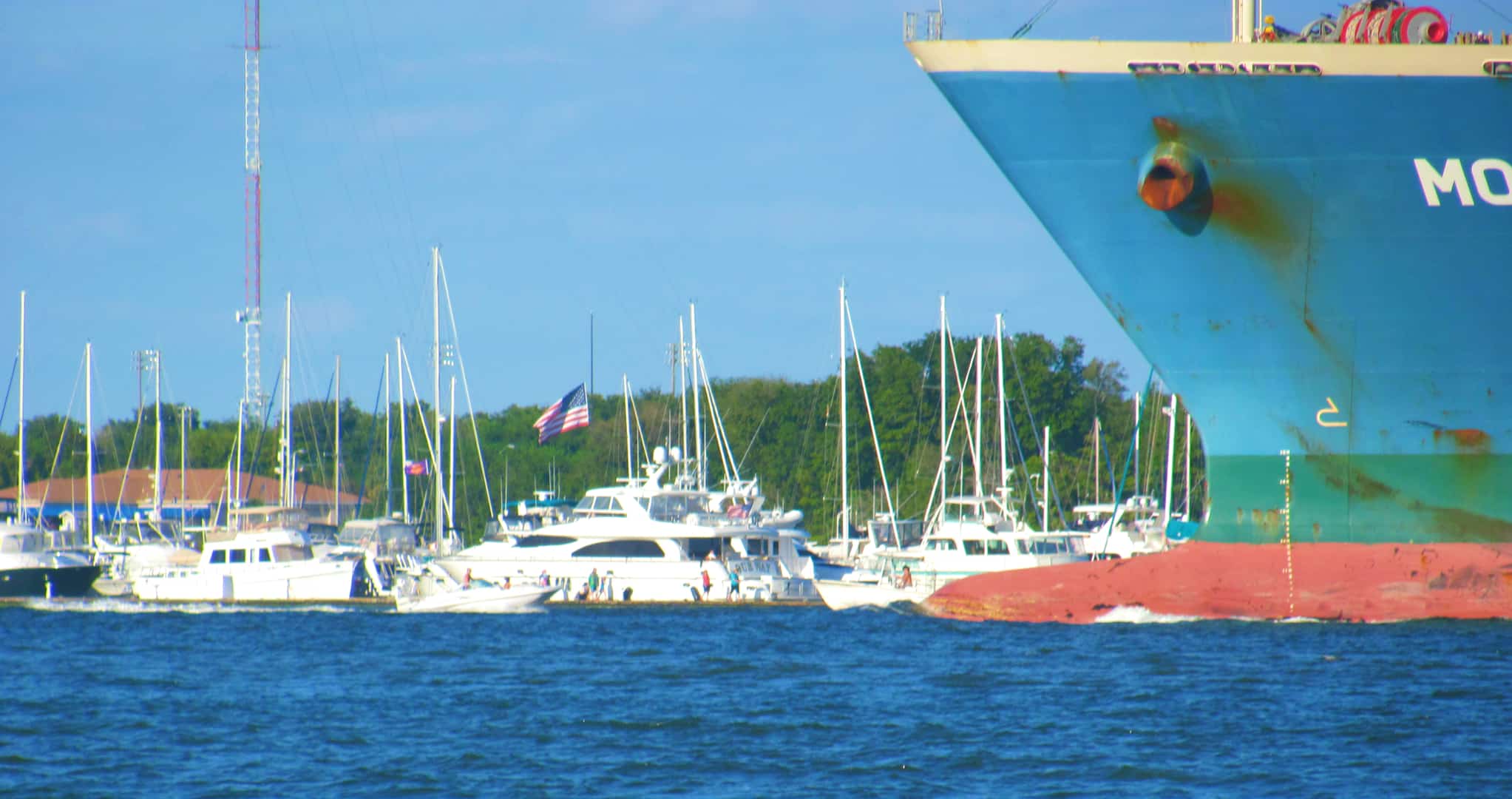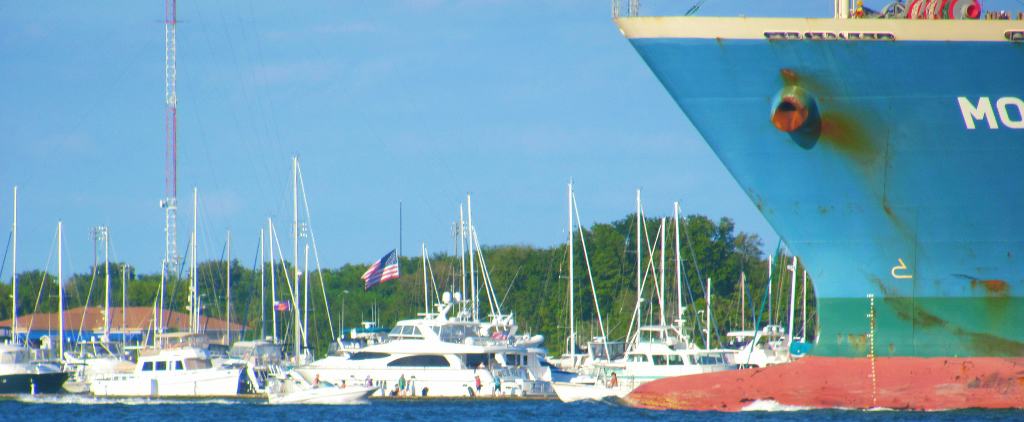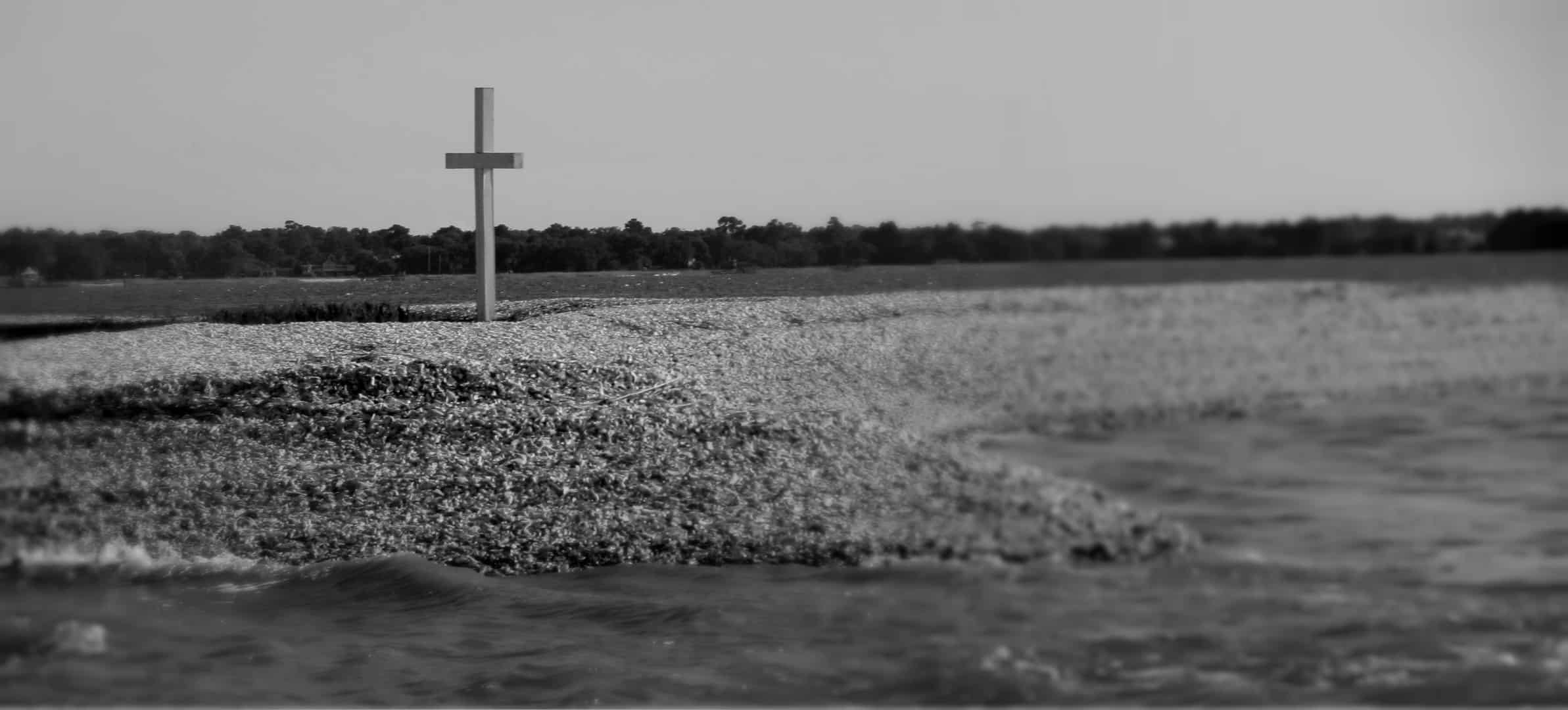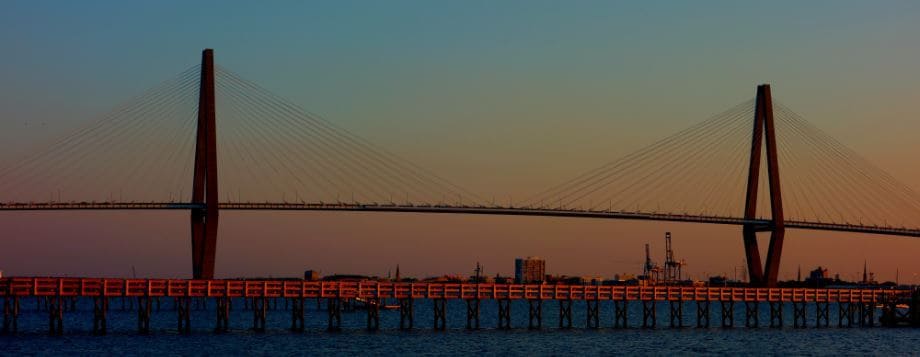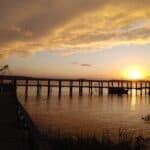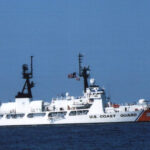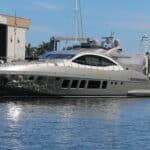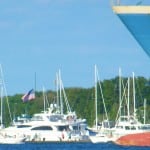Good morning to Captain and crew alike and welcome to the Admiralty Docket. Today our subject is one which clients ask us about from time to time and that could potentially affect all of us who are vessel owners, operators, or passengers in South Carolina: civil liability for boat accidents caused by “wake damage” (any damage caused by a vessel’s speed and motion through the water). In Charleston and other port cities ships and other large vessels share the water with smaller vessels of all kinds, both under way and moored at various locations. Vessels which are underway often produce a significant wake which can affect people, structures, and other vessels nearby. So….what does the maritime law have to say about wake damage?
THE GENERAL RULES
The general maritime rule applies to vessels of all types, from the largest ships to the smallest boats and personal watercraft, operating in the navigable waters of the United States (most, but not all, lakes, rivers, and coastal waters, no matter the depth, in South Carolina are “navigable waters” for these purposes). A vessel causing injury to others by her swell or wake is held responsible for any failure to appreciate the reasonable effect of her own speed and motion through the water at the particular place and under the particular circumstances where the injury occurred. Her officers are required to take all reasonable precautions to avoid injury to another vessel, including crew or passengers. All reasonable precautions must be taken even though past experience has shown that in the ordinary and usual course of events they are likely to escape injury.
Even when a larger vessel is proceeding on her ordinary course and at her customary speed, the admiralty law requires that all reasonable precautions must be taken. Smaller craft have the right to assume that larger craft aware of their presence will observe reasonable precautions and smaller craft are under no duty to warn the larger vessel of the danger.
A ship passing piers or docks where other vessels are tied up is obligated to proceed carefully and prudently so as to avoid creating unusual swells or suction which would damage craft properly moored or installations along the shoreline. The moving vessel must take into consideration the reasonable effect to be anticipated from her speed and motion through the water and must take such precautions by way of reduction of speed or alteration of course as may be necessary to prevent such damage.
On the other hand piers and docks along the shoreline are required to be kept in proper condition and vessels tied up there must be seaworthy and properly moored so as to resist ordinary and normal swells, even in narrow waters where heavy traffic may be anticipated. Some wash from passing vessels is bound to occur and must be anticipated and guarded against. Only unusual swells or suction which cannot be reasonably anticipated furnish the basis for a claim. Note that these rules are altered when a vessel proceeds within a “No Wake” Zone established by the United States Coast Guard or the SCDNR.
REMEDIES FOR THE INJURED PARTY IN A BOAT ACCIDENT
So, what civil remedies do people who have suffered personal injury or property damage in have in these circumstances under maritime law? It is surprising to many that there is admiralty tort jurisdiction over such cases that gives rise to admiralty law remedies. In many circumstances, the injured party can bring a civil claim against both the operator and vessel owner individually (or in personam) and against the offending vessel itself, in rem. The in rem claim against the vessel is perfected by procuring the vessel’s arrest by the United States Marshals Service, and the vessel can be sold and the proceeds held as security for the injured party’s claim if it is not bonded out.
To recover in a civil claim for injury or property damage caused by the wake of a passing vessel, the injured party or owners of the wake damaged vessel must prove that swells or suction caused the injury or damage, that the damaged vessel was properly moored to resist ordinary swells or suction (if the claim is for damage to a vessel outside of a no-wake zone), and that the offending swells or suction came from the passing vessel. The fact of injury or damage from swells or wake establishes the prima facie liability of the vessel creating the swells or wake. If this is proven, then, to avoid liability under the admiralty law, the passing vessel must show that she was powerless to prevent the injury by any practical precautions she could have adopted. Admiralty law has adopted a pure comparative fault standard, allowing the finder of fact to apportion fault among the various parties as it sees fit under the facts of each case.
Wake damage caused within an official “No Wake” zone can constitute negligence per se and the vessel owner and operator can be held liable for any personal injury or property damage proximately caused by the wake without the need to prove any breach of duty to those harmed.
More next week on The Admiralty Docket. Until then remember, your rights and responsibilities may change as you approach the shore and may God Almighty grant you pleasant sailing.
The Admiralty Docket is a blog written by Charleston, SC Boat Accident Attorneys John Hughes Cooper and John Townsend Cooper which focuses on maritime legal issues and current events in South Carolina and the Southeastern United States.
